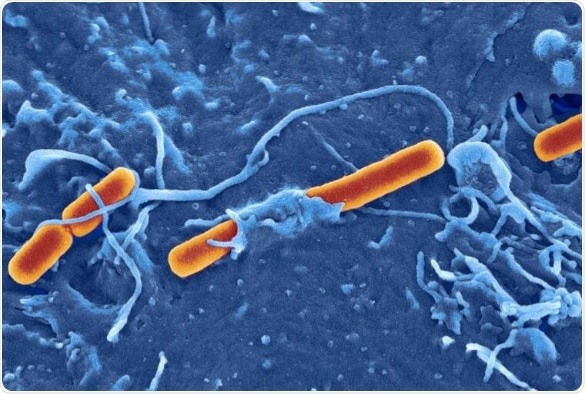New genomics research conducted by the University of Liverpool will aid in the development and implementation of vaccinations against Shigella—the world’s most common cause of acute diarrhea in children.

Image Credit: University of Liverpool
In low- and middle-income countries (LMICs), Shigella is the most prevalent bacterial cause of severe pediatric diarrhea, and it is becoming more antibiotic resistant. However, there is no widely accessible licensed Shigella vaccine, and one of the core problems in its development is the bacteria’s high genetic and phenotypic variety.
Researchers evaluated whole-genome sequences of 1,246 Shigella samples carefully obtained from seven LMICs to define this diversity, which is crucial for vaccine development and deployment, as well as other aspects of disease prevention. The study was published in the journal Nature Microbiology.
Between 2007 and 2011, the Global Enteric Multicenter Study (GEMS) gathered samples from all four Shigella species, which are S. sonnei, S. flexneri, S. boydii, and S. dysenteriae.
The study focuses on pathogen characteristics that will challenge current vaccine efforts, geographical disparities in Shigella diversity, and antibiotic resistance factors.
According to the research, Shigella sonnei produces at least six times more sickness than other Shigella species in terms of genomic diversity, and S. flexneri’s present diversity and adaptative capacity may produce vaccine evasion mutants in less than six months. The study also found the divergent resistance development to ciprofloxacin, the present WHO-recommended antimicrobial for shigellosis treatment.
Pathogen genomics is a powerful tool that has a wide range of applications to help combat infectious diseases. Through genomic analyses of an epidemiologically representative dataset, we revealed the extent of Shigella population genomic diversity impacting those who are most vulnerable to shigellosis, and the implications that this diversity has on current vaccine strategies.”
Dr Rebecca Bengtsson, University of Liverpool
Bengtsson also led the data analysis of this study.
Several existing vaccine approaches focus on the Shigella serotype, but Shigella has more than 50 serotypes, but these can change quickly, resulting in immune escape variants. Specific-subunit vaccines, which target highly conserved proteins and may provide wide protection, are an appealing alternative and/or complement to this approach, but the degree of antigenic variation in these objectives is uncertain.
The amount and type of variation in antigens, as well as the rate at which they can modify serotypes, were investigated in this study. On the whole, the findings indicate that protein-based antigens provide the most consistent vaccine targets for this globally significant pathogen.
The disease burden and increasing AMR of Shigella call for revision of treatment and management options, and significant momentum has built to rise to this challenge. The genomic diversity in Shigella presents a major hurdle in controlling the disease and we have demonstrated the anticipated pitfalls of current vaccination approaches.”
Dr Kate Baker, University of Liverpool
Dr Kate Baker, who led the study, added, “This highlights the need to consider genomic diversity in vaccine development and treatment plans for Shigella and other pathogens.”
Source:
Journal reference:
Bengtsson, R. J., et al. (2022) Pathogenomic analyses of Shigella isolates inform factors limiting shigellosis prevention and control across LMICs. Nature Microbiology. doi.org/10.1038/s41564-021-01054-z.